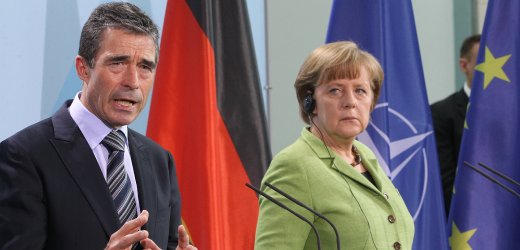
From Gregor Peter Schmitz, Spiegel: Germany may be Europe’s driving force in the euro crisis, but a prominent US think tank has accused the country of shirking its defense duties. . . .
The Atlantic Council is considered one of Washington’s leading foreign policy think tanks. The non-partisan institution was founded in 1961 and its honorary directors include former Secretaries of State Madeleine Albright and Condoleezza Rice.
The Council places high value on using a diplomatic tone. So when its members resort to strong rhetoric it causes a stir, especially so now, on the eve of the NATO summit on May 20-21 in Chicago. In a 12-page report titled "Anchoring the Alliance" the Council’s experts dissect the future of the defense alliance — and make Germany into the main scapegoat for NATO’s problems.
"A stronger Germany would be the greatest boost to NATO’s future," says the study. But the authors say that the exact opposite is actually true, namely there is less German involvement. Germany, which has taken a lead role in the euro crisis, behaves like a "lost nation" when it comes to political and military leadership.
Germany’s helpless behaviour has consequences, says the study. "A weak Germany that lacks a capacity to act globally will inevitably weaken NATO," the authors write. "Europe cannot remain a major force within the NATO Alliance if a country of Germany’s size, geography, and prosperity makes the kind of deep reductions in defense spending announced by Chancellor Angela Merkel’s government in 2011. . . ."
The sobering result is that trans-Atlantic experts in Washington fear for Germany’s relationship with America. That was also confirmed by a recent survey about the future of NATO that [the Atlantic Council and] Foreign Policy magazine conducted among dozens of experts in Europe and the US.
When asked what will primarily define German foreign policy in 2020, only three experts cited "the trans-Atlantic relationship" with the US. By contrast, 14 experts said the most important influence would be "Berlin’s preference for the status quo." (photo: DPA)
Image: dpa%205%2018%2012%20Rasmussen%20Merkel.jpg
